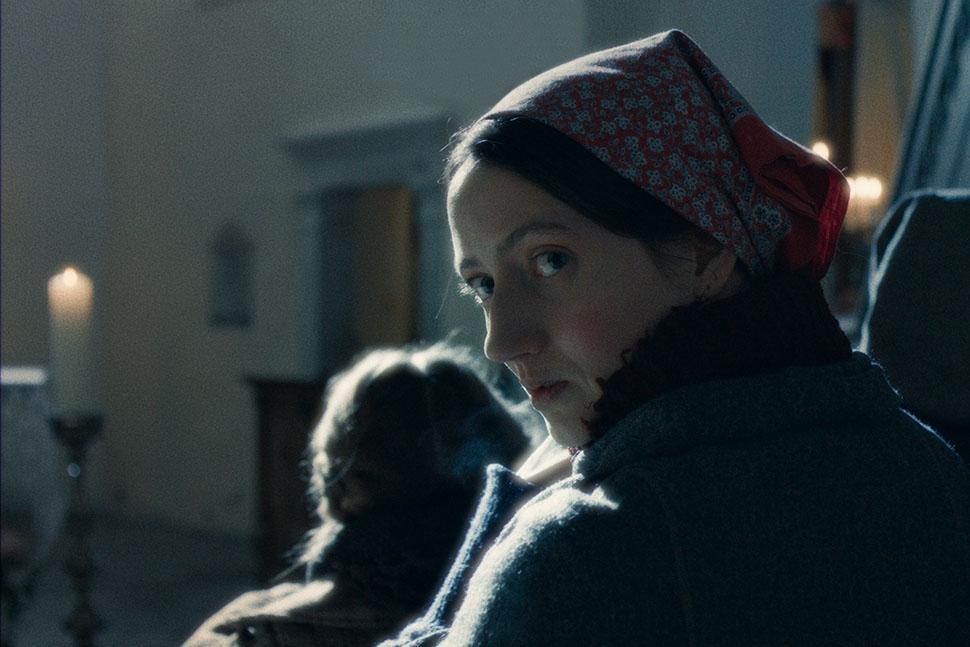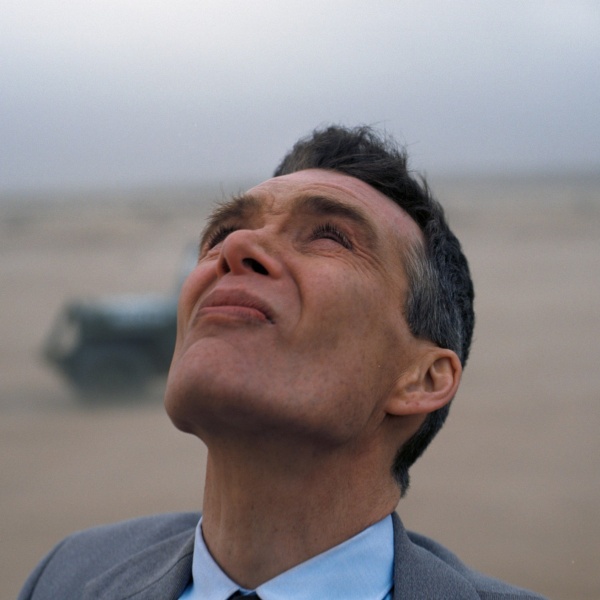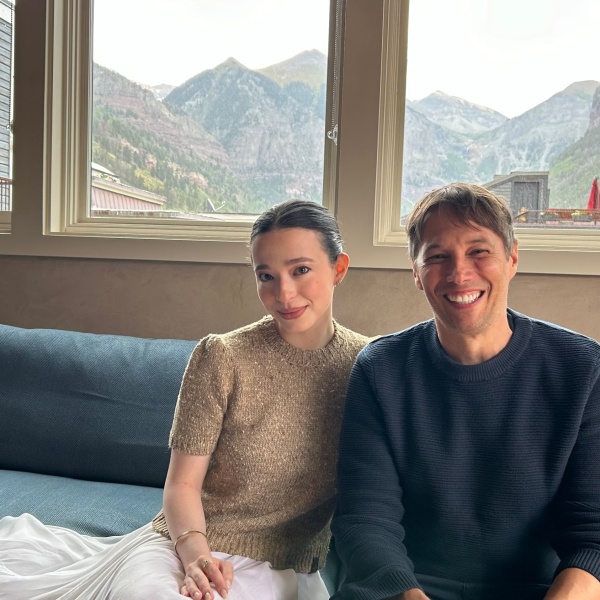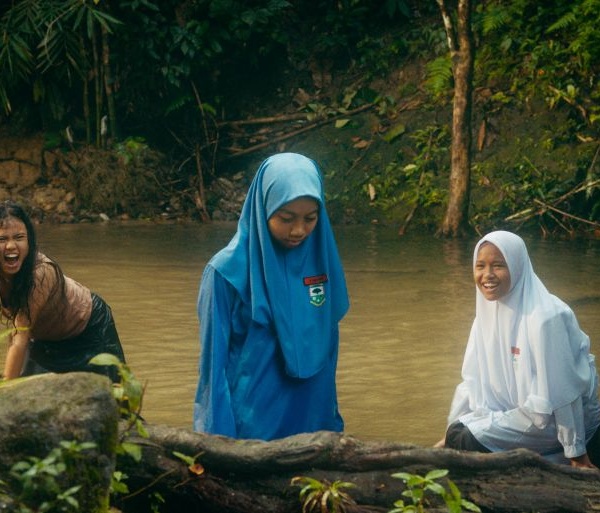When you live your whole life surrounded by vistas as stunning as the Northern Italian mountains, it’s easy to become numb to the beauty around you. The world inhabited by the central family of Maura Delpero’s “Vermiglio,” living in the small town of the same name nestled above the rolling Val do Sole valley beneath snow-capped Mount Boai, is as isolated as it is breathtaking. Delpero regularly dwarfs her characters in the frame against these far-reaching landscapes where even the cool blue winter light that is captured pouring in through chinks in bedroom shutters possesses a magical, almost liquid quality.
But, just like for the inhabitants of the film, the natural splendor of this world isn’t enough to distract from its problems.
Maura Delpero’s second fiction feature follows 2019’s award-winning “Maternal,” which followed a young Argentinean nurse traveling to Italy to take her final vows and work with pregnant teens. That striking look at the crushing responsibility of motherhood won her four trophies at Locarno and was a tauter piece, with a more bristling, defiantly feminist lens. Many of the themes of the two films overlap, both looking at the impossible expectations and pressures that accompany young womanhood, but this film’s handling of those themes is notably more staid.
Her latest commences with a series of silent scenes: A large family awakens for the day, a cow is lovingly milked, and ladlefuls of its warm milk are doled out to this taciturn brood. The year is 1944, and miles away, the final brutalities of World War Two are taking place, with only the occasional sound of a plane overhead making its horrors tangible to this remote village. The stern, impressively mustachio’d patriarch (Tommaso Ragno) lords over children, including the film’s central trio Lucia (Martina Scrinzi), Ada (Rachele Potrich, and Flavia (Anna Thaler), all on the cusp of womanhood.
He is also the local school teacher, and in a small classroom where many of the cross-generational pupils are his own offspring, he seeks to sternly impart structure and wisdom. In the evenings, he turns to the town’s adults, helping the semi-literate among them become proficient in verb conjugation and epistolary writing.
The town is gently shaken by the arrival of Pietro (Giuseppe De Domenico), a Sicilian soldier who has crossed the mountainous terrain with a child on his back. He divides the locals, some seeing his actions as a deeply human response to the brutality of battle and others viewing him with ignominy, hissing at the local tavern that “running away from war is cowardice.”
Eventually, after a plethora of handsome, dialogue-light scenes and a barely glanced-upon bereavement, Pietro and Lucia begin to fall in love, and the film’s latter half turns to how the eldest daughter’s marriage changes the dynamics of a reserved group of siblings. But despite the outward rearranging of power structures and sleeping arrangements, these shifts are depicted with such subtlety that its hard to identify what changes are born of metamorphosis in the wake of tragedy and what are previously unestablished character traits.
There is something approaching a twist, but its build-up is so long sign-posted that it barely registers as such. Even the ways that the younger generation and the family matriarch begin to stand up for themselves more is not clearly uncharacteristic. Beyond Ada, who is so pious she would not become pregnant lest it keeps her away from the church, there’s no real sense of what the individuals in this family truly believe their place is in this rapidly changing world or how much of their identities have been forged in opposition to one another.
Even in the case of Ada, whose resentment toward Lucia is one of the more fleshed-out dynamics, the film has a strangely contemptuous view of her single-minded commitment to a life of religious devotion. With the brief moments of privacy she is afforded she gets to investigate the ways puberty is changing her body but that is framed as slightly absurd, made more so by her subsequent prayers to “Promise I will no longer go behind the wardrobe.”
At the conclusion of the film, a single year has passed, the family has grown in number, and the war has finally come to an end. However, despite the film’s clear intention to reflect on the specific time in which this place is set, its musings are rather vague. Frustratingly, the most complicated motives and dramatic consequences of Pietro’s actions are also imprecise and left largely to the viewer’s imagination.
For a film that is so purposely languid and restrained as a portrait of isolation, to call it dreary would in some ways argue in its favor, as it is intentionally depicting the tedium of waiting for the world to start anew. Unlike in more action-packed cinematic depictions of the war, this remote populace has no choice but embrace the mundanity while the conflict’s consequences slowly and subtly infuse into its DNA. But much like the many characters who long to leave this place by the time the film’s two-hour running time has come to an end, the viewer is in a similar position. Life may have been very beautiful in this mountain town but even during its most tumultuous years, spending time within it isn’t exactly fascinating.
Grade: C+
“Vermiglio” premiered at the 2024 Venice Film Festival. It is currently seeking U.S. distribution.
Want to stay up to date on IndieWire’s film reviews and critical thoughts? Subscribe here to our newly launched newsletter, In Review by David Ehrlich, in which our Chief Film Critic and Head Reviews Editor rounds up the best reviews, streaming picks, and offers some new musings, all only available to subscribers.




